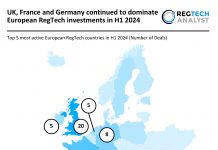The ECB and the European Systemic Risk Board (ESRB) have released a report focusing on the impact of climate change on the EU’s financial system.
This comprehensive report introduces a set of frameworks targeting the enhancement of financial stability in the face of climate risks.
The report outlines the creation of a surveillance framework alongside a Chartbook to monitor financial stability indicators significantly impacted by climate change. It also proposes a macroprudential approach to manage climate-related risks. This strategy extends to nature-related risks, offering a broad scope of risk management.
A critical finding is that banks lend significantly more to sectors with high exposure to climate-related risks. The report notes that such sectors are overrepresented in bank loans, with a lending share 75% higher than their share in economic activity.
The increasing frequency of climate hazards and the EU’s green transition plans are causing a shift in financial stability dynamics. The report warns of potential financial instability as banks and markets adjust their asset portfolios.
The report advocates for a system-wide prudential approach, not just for banking sectors but also for borrowers and non-bank financial intermediaries. This includes addressing insurance protection gaps and the need for reliable environmental disclosures.
It also highlights the risks to financial stability from the degradation of nature, with a significant portion of bank loans and insurer investments in sectors dependent on ecosystem services.
The ECB and ESRB’s joint report marks a significant step in understanding and addressing the financial risks posed by climate and nature-related changes. It is part of the ECB’s broader response to climate change, following three previous reports on climate risk.
“Climate change poses significant risks to financial stability, and our report with the ESRB lays out a strategic path to address these risks,” ECB Board Member Frank Elderson commented. “Our approach aims to encompass a wide range of climate and nature-related risks, ensuring the resilience of the EU financial system.”
Copyright © 2023 RegTech Analyst
Copyright © 2018 RegTech Analyst






